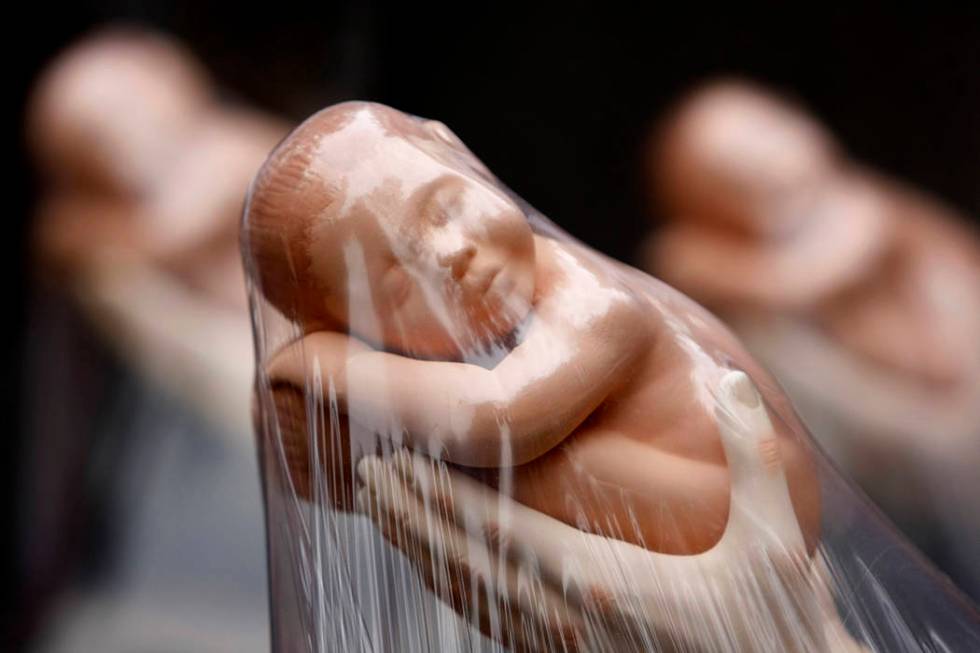VICTOR JOECKS: Arguments for abortion, slavery rely on the same premise

Abortion advocates use the same technique as proponents of slavery did 160 years ago — dehumanize a marginalized group to deny them their rights.
You saw an example of that last week after Alabama enacted a law making abortion illegal, except when continuing a pregnancy puts a mother’s life at risk. The law’s key provision is defining an unborn child as a human being. If an unborn child is a human being, it follows that a pregnant woman doesn’t have the right to kill her unborn baby.
Every leading Democratic presidential candidate rushed to condemn the law.
Sen. Bernie Sanders declared, “Fundamental rights are under attack.” Joe Biden called abortion a “choice” and said “Roe v. Wade is settled law.” Sen. Kamala Harris tweeted that she supported groups fighting “to defend women’s health care.” Mayor Pete Buttigieg went further, arguing the Alabama legislature is “punishing women.”
Return to the 1850s and you’d hear similar arguments in favor of slavery. Abolitionists were attacking fundamental Southern rights. Slavery was simply a choice. If you didn’t like it, you didn’t have to participate. The South needed to defend slaveholders’ access to free labor. Abolitionists were trying to punish slaveholders.
There was even a well-known court case, Dred Scott v. Sandford, protecting this supposed right. That ruling held that slaves were “property.”
“Congress cannot exercise any more authority over property of that description than it may constitutionally exercise over property of any other kind,” Chief Justice Robert Taney wrote.
Now, if the North had been trying to ban farming equipment, such as plows or reapers, all these arguments would have made sense. But the fundamental difference between a slave and plow made these arguments ludicrous. A slave was a human being. Human beings are “endowed by their Creator” with the right to life, liberty and the pursuit of happiness. That’s what makes it morally wrong to treat a fellow human being like property.
That brings us back to the Alabama law. If the law prevented women from removing cysts or kidney stones, every pro-abortion argument would make sense. That would be an attack on women’s health care. These arguments make sense, however, only if a preborn baby isn’t a human. This is like how the logic of Dred Scott rested on the claim that slaves were merely property.
“When a woman is pregnant, that is not a human being inside of her,” CNN contributor Christine Quinn said earlier this month.
That’s as laughable and scientifically ignorant as claiming a person’s skin color determines their humanity. Embryonic science shows a preborn baby is a living biological organism. She has her own unique DNA. Just four weeks after fertilization, her heart will start beating.
Savvier abortion supporters ignore that question or claim it’s impossible to know. Justice Harry Andrew Blackmun wrote in Roe that the Supreme Court “need not resolve the difficult question of when life begins
This uncertainty should lead to a pro-life stance. If you’re not sure if a policy ends innocent human life, you have a moral imperative not to support that policy. That’s especially true since there have been more than 50 million abortions in America since Roe.
Slaveholders once asserted that slaves were property. Abortion supporters now act as if a preborn baby is no more human than a cyst.
May there be unanimous agreement one day that the second statement is as ludicrous as the first.
Victor Joecks’ column appears in the Opinion section each Sunday, Wednesday and Friday. Listen to him discuss his columns each Monday at 10 a.m. with Kevin Wall on 790 Talk Now. Contact him at vjoecks@reviewjournal.com or 702-383-4698. Follow @victorjoecks on Twitter.